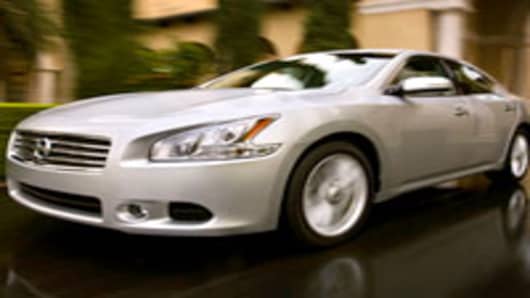Figuring out how crash tests impact consumers is a tricky thing. Yes, if we see a model perform horribly, we'll talk about it and that model will likely see weaker sales.
But when models improve, do we notice? What if they only rate as adequate? Does it change how we view certain models? I'm not so sure.
I ask that because the Insurance Institute for Highway Safety has released its latest findings on crash tests for new '08 mid-size sedans. Given that these are models in the heart of the mass market, you would think the public would be paying close attention.
But in this case, I think the mixed message will get a collective yawn. The good news is that the group (Malibu, Avenger, G35, Optima, etc) did well in front and side impact crashes. Unfortunately, the segment did not do as well on rear impact crashes. So how do you read this? How much do you care?
I know that some of you will read that last sentence and say to yourself, "Well, of course we care about safety, moron." Yet, when I talk with people or get e-mails from some of you, I rarely hear safety mentioned as one of the main criteria for selecting a car.
Typically mileage, price, style all come across as more important. The one exception seems to be with parents of kids, who will ask me how the safety ratings of different models compare.
Which brings me back to the mid-size sedan crash tests. The fact that some of these models did not do well on rear impact crashes should be a reason for concern. But I remain skeptical that I will hear anyone tell me, "that model was only rated as adequate in protecting me if I get rear-ended."
Questions? Comments? BehindTheWheel@cnbc.com



